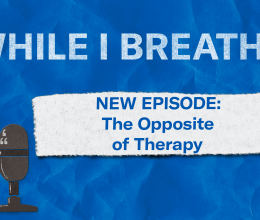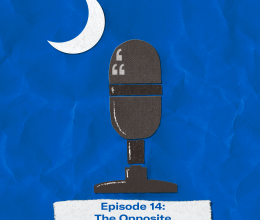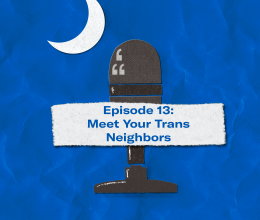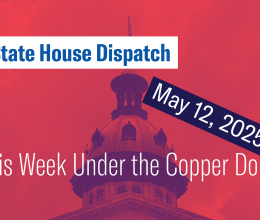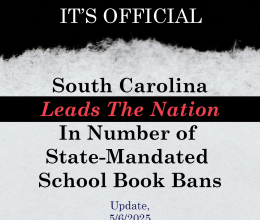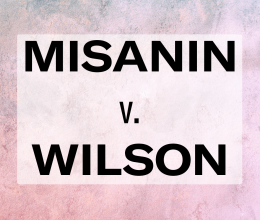
COLUMBIA – Today the U.S. Supreme Court released a 6-3 opinion in U.S. v. Skrmetti, a landmark case challenging Tennessee’s categorical ban on gender-affirming hormonal therapies for transgender people under age 18.
The Supreme Court agreed with parts of a Sixth Circuit opinion that allowed Tennessee’s ban to take effect. This is a painful outcome for transgender young people and their families in Tennessee. However, because the opinion is based on the record in and context of the Tennessee case, the opinion does not extend to other cases concerning discrimination based on transgender status.
In light of today’s disappointing decision, the ACLU of South Carolina remains committed to fighting for the rights of all South Carolinians, including LGBTQ people whose rights and autonomy are under attack by our most powerful politicians.
“This is a devastating moment for transgender youth, their parents, and their doctors across the country and here in South Carolina. Because the Court has failed to protect families’ freedoms, transgender young people will be denied access to appropriate healthcare,” said Jace Woodrum, Executive Director of the ACLU of South Carolina. “No matter what the Court or politicians say, transgender people are not alone in this fight. Our case in South Carolina continues, and we will never stop fighting in the courtroom and in communities across the state to ensure that transgender South Carolinians have the freedom to shape their own futures.”
South Carolina’s ban on gender-affirming care (House Bill 4624) is far more expansive than Tennessee's SB1, prohibiting access for trans youth and restricting it for many trans adults due to its restrictions on public funding and Medicaid coverage for care. The ACLU-SC and its legal partners will continue to challenge South Carolina’s unconstitutional ban. The federal lawsuit challenging H. 4624 in South Carolina, Misanin v. Wilson, is ongoing.
“This is an incredibly disappointing and heartbreaking day for transgender youth, their families, and the people who love them. But the fight is far from over,” said Meredith McPhail, Staff Attorney for the ACLU of South Carolina. “There are still many tools in our toolbox, and we are not going to stop pushing for justice and equality for transgender South Carolinians.”
Because the Court ruled that Tennessee’s law does not treat people differently on the basis of sex, the law only has to survive what is called “rational basis review.” Essentially, in order for the law to survive an Equal Protection challenge, Tennessee only had to give “plausible reasons” to justify the law. Today the Supreme Court held that under that standard, Tennessee’s law did not violate the Equal Protection Clause.
The ACLU-SC's challenge to South Carolina’s gender-affirming care ban, Misanin v. Wilson, had been paused in anticipation of today’s decision and will now move forward. It is important to know that South Carolina’s law differs from Tennessee’s in important ways. Critically, the provisions restricting public funds and Medicaid apply to adults as well as to minors. The ACLU of South Carolina has argued, and will continue to argue, that House Bill 4624 cannot survive even the lower bar of rational-basis scrutiny.
About Skrmetti
U.S. v. Skrmetti is a landmark lawsuit filed by the ACLU, Lambda Legal, ACLU of Tennessee, and Akin Gump on behalf of transgender youth and their families challenging Tennessee’s categorical ban (SB1) on gender-affirming hormonal therapies for transgender youth on the grounds the law violates the Equal Protection Clause of the U.S. Constitution by discriminating based on sex and transgender status.
Tennessean family Samantha and Brian Williams of Nashville, and their 15-year-old transgender daughter, are challenging a Tennessee law banning gender-affirming care for transgender people under 18. Tennessee is home to more than 3,000 transgender adolescents, and the health care banned by this law is supported by the entire mainstream of the medical community.
Learn more about the case here: The Supreme Court Case on Trans Health Care, Explained. The ACLU has released a statement in response to today’s ruling here: ACLU, Lambda Legal Respond to Supreme Court Ruling in U.S. v. Skrmetti.
About Misanin
In May 2024, South Carolina lawmakers enacted House Bill 4624, which prohibits doctors from providing gender-affirming healthcare to transgender youth as well as many transgender adults. They passed the bill despite vocal opposition from leading medical organizations, pediatricians, LGBTQ+ South Carolinians, and parents of trans youth who warned the state that the law was discriminatory, harmful, and unneeded.
In August, three adult transgender South Carolinians who had lost access to healthcare, along with two families of trans youth who were blocked from receiving care in the state, sued the state seeking a preliminary and permanent injunction on three provisions of this law:
- A prohibition on medical professionals providing gender-affirming care to South Carolinians under age 18;
- A prohibition on the use of public funds for gender-affirming care for South Carolinians regardless of age; and
- A prohibition on gender-affirming care coverage under South Carolina’s Medicaid program
The plaintiffs are represented by attorneys from the American Civil Liberties Union, ACLU of South Carolina, and Selendy Gay. Most plaintiffs filed under pseudonyms to protect their anonymity, with the exception of Sterling Misanin, an adult trans man who had a surgical appointment canceled at the last minute following passage of the law.
Learn more about the case here: Misanin v. Wilson.

